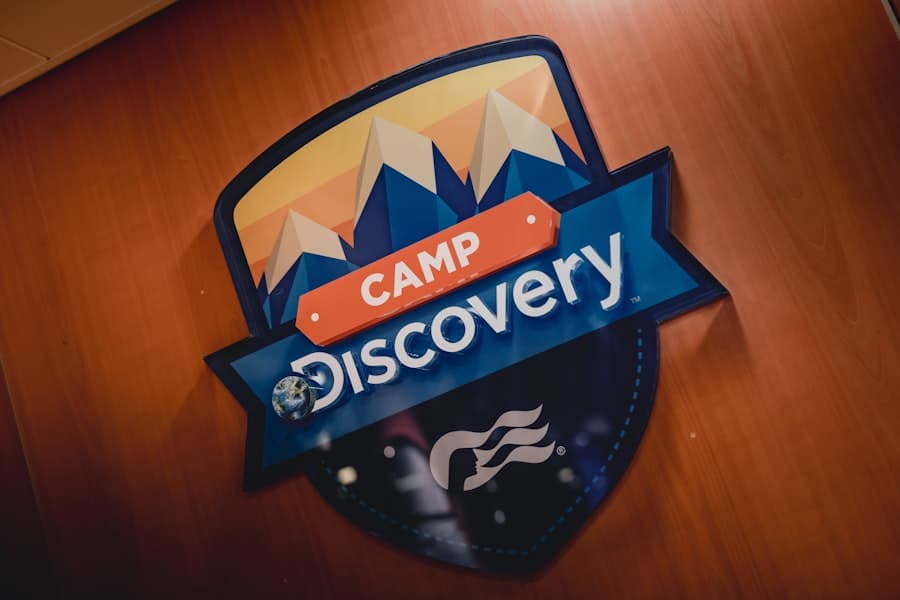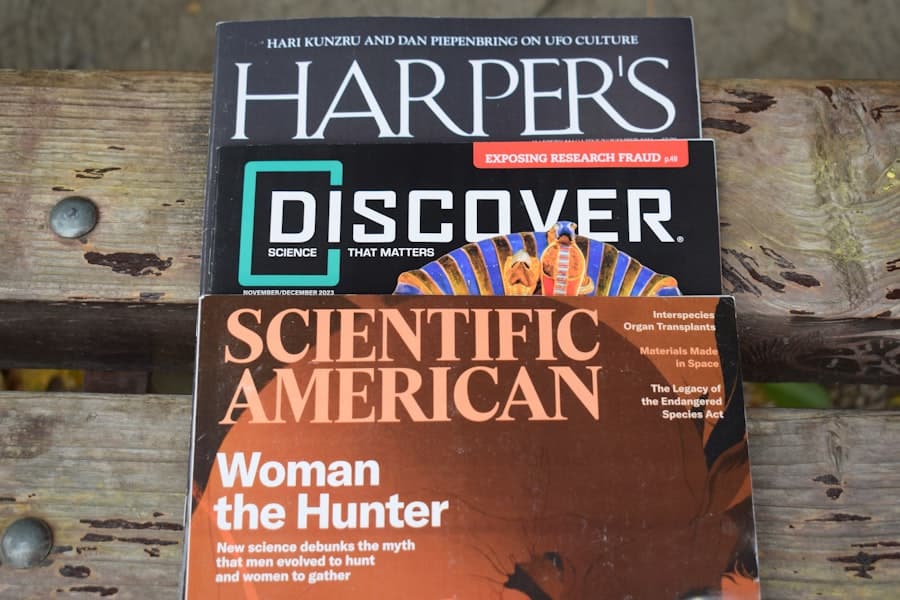The advent of artificial intelligence (AI) has revolutionized numerous sectors, and career discovery is no exception. As individuals navigate the complexities of the job market, AI technologies have emerged as powerful tools that can enhance the process of identifying suitable career paths. By leveraging vast amounts of data and sophisticated algorithms, AI can provide insights that were previously unattainable, enabling job seekers to make informed decisions about their futures.
The integration of AI into career exploration not only simplifies the search for employment but also personalizes the experience, catering to the unique aspirations and skills of each individual. In a world where traditional career guidance methods often fall short, AI offers a fresh perspective. It can analyze trends in the job market, assess individual qualifications, and even predict future employment opportunities based on emerging industries.
This capability is particularly valuable in an era characterized by rapid technological advancements and shifting economic landscapes. As such, understanding how AI functions within the realm of career discovery is essential for both job seekers and employers alike, as it shapes the future of work and the pathways individuals take to achieve their professional goals.
Key Takeaways
- AI in career discovery uses advanced technology to help individuals explore and identify potential career paths based on their skills, interests, and values.
- The benefits of AI in career exploration include providing personalized recommendations, increasing efficiency, and reducing bias in the decision-making process.
- AI can streamline the job search process by automating tasks such as resume screening, job matching, and scheduling interviews, saving time and effort for job seekers.
- AI plays a crucial role in providing personalized career recommendations by analyzing individual data and preferences to suggest suitable career options.
- AI’s impact on skill assessment and development involves using data-driven insights to identify and address skill gaps, as well as providing personalized learning opportunities.
- Ethical considerations of AI in career discovery include concerns about data privacy, algorithmic bias, and the potential for job displacement.
- The future of AI in career exploration is expected to involve more advanced algorithms, increased personalization, and a greater focus on ethical and transparent use of AI technology.
- In conclusion, embracing AI as a tool for career discovery can lead to more efficient, personalized, and informed decision-making processes for individuals seeking to explore and develop their careers.
The Benefits of AI in Career Exploration
One of the most significant advantages of AI in career exploration is its ability to process and analyze large datasets quickly and efficiently. Traditional methods of career counseling often rely on subjective assessments and limited information, which can lead to mismatches between individuals and their chosen career paths. In contrast, AI systems can evaluate a multitude of factors, including educational background, work experience, personality traits, and even market demand for specific skills.
This data-driven approach allows for a more accurate alignment between an individual’s capabilities and potential job opportunities. Moreover, AI can enhance the accessibility of career resources.
For instance, platforms like LinkedIn utilize AI algorithms to suggest job openings based on users’ profiles and activity. This democratization of information empowers job seekers to explore a wider range of options that they may not have considered otherwise, ultimately leading to more fulfilling career choices.
How AI Can Streamline the Job Search Process

The job search process can often be overwhelming, with countless applications to submit and numerous positions to evaluate. AI streamlines this process by automating various tasks that would otherwise consume significant time and effort. For example, AI-powered resume screening tools can quickly sift through hundreds or thousands of applications to identify candidates who meet specific criteria set by employers.
This not only accelerates the hiring process but also ensures that qualified candidates are not overlooked due to human error or bias. Additionally, AI can assist job seekers in crafting more effective resumes and cover letters. By analyzing successful applications for similar positions, AI tools can provide insights into the language and formatting that resonate with hiring managers.
This guidance helps candidates present themselves in the best possible light, increasing their chances of securing interviews. Furthermore, chatbots equipped with AI capabilities can offer real-time assistance during the application process, answering questions and providing support as candidates navigate various platforms.
The Role of AI in Personalized Career Recommendations
Personalization is a hallmark of modern technology, and AI excels in delivering tailored experiences to users. In the context of career discovery, AI can analyze an individual’s skills, interests, and values to generate personalized career recommendations. By utilizing machine learning algorithms that adapt over time, these systems can refine their suggestions based on user feedback and changing market conditions.
For instance, platforms like Glassdoor and Indeed employ AI to recommend job openings that align with users’ profiles. By considering factors such as previous job searches, saved positions, and even user ratings of companies, these platforms create a customized experience that enhances the likelihood of finding a suitable match. This level of personalization not only saves time but also increases user satisfaction by presenting opportunities that genuinely resonate with individual aspirations.
AI’s Impact on Skill Assessment and Development
As industries evolve and new technologies emerge, the demand for specific skills continues to shift. AI plays a crucial role in assessing current skill sets and identifying areas for development. Through advanced analytics, AI can evaluate an individual’s competencies against industry benchmarks, providing insights into gaps that may hinder career advancement.
This capability is particularly beneficial for professionals looking to pivot into new fields or enhance their existing skill sets. Moreover, AI-driven platforms can recommend targeted training programs or courses based on identified skill gaps. For example, if an individual aspires to transition into data science but lacks proficiency in programming languages like Python or R, an AI system can suggest relevant online courses or boot camps tailored to their learning style and pace.
This proactive approach to skill development not only empowers individuals to take charge of their careers but also aligns their capabilities with market demands.
The Ethical Considerations of AI in Career Discovery

While the benefits of AI in career discovery are substantial, ethical considerations must also be addressed. One primary concern is the potential for bias in AI algorithms. If the data used to train these systems reflects historical biases—such as gender or racial disparities—there is a risk that these biases will be perpetuated in hiring practices.
For instance, if an AI tool is trained on data from industries that have historically favored certain demographics, it may inadvertently favor candidates who fit those profiles while disadvantaging others. Transparency is another critical ethical consideration. Job seekers should be informed about how their data is being used and how decisions are made by AI systems.
This transparency fosters trust between users and technology providers while ensuring that individuals have control over their personal information. Additionally, there is a need for regulatory frameworks that govern the use of AI in hiring processes to mitigate potential discrimination and ensure fair treatment for all candidates.
The Future of AI in Career Exploration
Looking ahead, the role of AI in career exploration is poised to expand even further as technology continues to advance. One potential development is the integration of virtual reality (VR) and augmented reality (AR) with AI-driven career tools.
Such experiences could enhance decision-making by allowing users to explore different roles interactively. Furthermore, as AI becomes more sophisticated, its ability to predict future job trends will improve significantly. By analyzing economic indicators, technological advancements, and societal shifts, AI could offer insights into emerging fields and skills that will be in demand years down the line.
This foresight would enable individuals to proactively prepare for future opportunities rather than reactively adapting to changes in the job market.
Embracing AI as a Tool for Career Discovery
The integration of artificial intelligence into career discovery represents a transformative shift in how individuals approach their professional journeys. By harnessing the power of data analysis and machine learning, AI provides personalized insights that empower job seekers to make informed decisions about their careers. While challenges such as bias and transparency must be addressed, the potential benefits far outweigh the drawbacks.
As we move forward into an increasingly digital world, embracing AI as a tool for career discovery will be essential for both individuals and organizations alike. By leveraging these technologies responsibly and ethically, we can create a more equitable job market where everyone has access to opportunities that align with their skills and aspirations. The future of work is undoubtedly intertwined with artificial intelligence, making it imperative for all stakeholders to adapt and thrive in this evolving landscape.
In the rapidly evolving landscape of career development, artificial intelligence is playing a pivotal role in automating the career discovery process. This transformation is not only reshaping how individuals explore career paths but also how businesses approach digital marketing strategies. For instance, the article on

